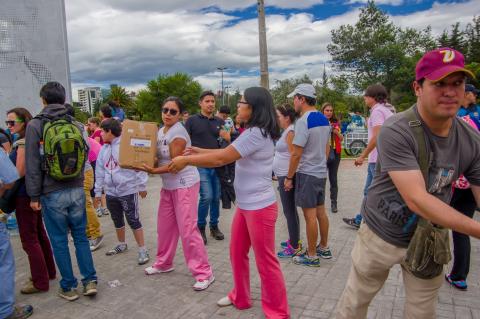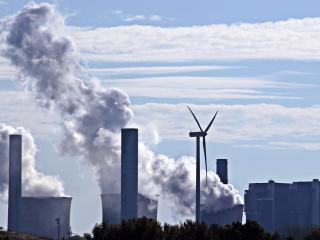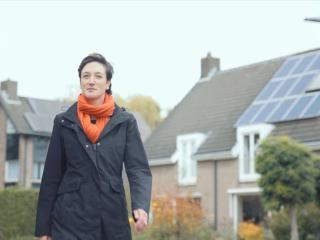Do we learn from a crisis?
Questions about social issues? Our experts are happy to answer them. We received the following questions: Can we learn from a crisis? What lessons can we learn from the current corona crisis? Or from the natural disasters that hit Haiti and Nepal? Will we be doing things differently or better next time? And do community feeling and solidarity outlast a crisis? As a result of the corona crisis, hopeful reports appear in the newspapers. Crisis expert Kenny Meesters wants to manage expectations.
The global corona crisis has turned the world upside down. Everyday life has grinded to a halt: in the care sector, it is all hands on deck, public transport is almost down, shops are closing or have an admission policy, schools are closed. People are no longer allowed to leave their homes, except for the necessary groceries. In the meantime, numerous initiatives are emerging on social media that show great solidarity and creativity: sending post cards to lonely elderly people, setting up a grocery service, sewing medical face masks. There are also hopeful articles that predict that this crisis will bring about positive structural change to our society.
But will it? Do we learn from a crisis or natural disaster? Are we in fact going to do it differently or better next time? Are we going to build stronger houses after an earthquake? Are we going to act sooner after the first signs of an epidemic? Will we better obey rules and instructions from the government? Will our solidarity and sense of community outlast the crisis? Crisis expert Kenny Meesters sheds light on these questions.

Immediate response phase
"You can divide a crisis into three phases," Meesters states. The first phase is the 'immediate response' phase. This is the phase immediately after the disaster has happened. What you see is that people start helping each other to alleviate the suffering, there is understanding and solidarity. For example, there are all kinds of initiatives on social media to buckle down together, all help is welcome, and we are all in the same boat. During the corona crisis, you see that people are doing all kinds of things to help the sick, the elderly, the lonely, and the SMEs and to support carers. After an earthquake, the local population helps with everything they’ve got to pull victims out of the rubble. This phase is usually relatively short.
Relief phase
As time passes, interest starts to flag. It becomes more difficult to sustain all the initiatives that have been developed. A somewhat longer phase begins, the 'relief' phase. In this phase, the needs become clear, such as food, shelter, and social care. People also begin to see the far-reaching consequences of the disaster, not only in the short term but also in the long term. At the same time, the long-term impact also takes its toll; people become fatigued and energy runs out. Needs are also slowly becoming more complex, and more specialized help is needed to meet them. Spontaneous initiatives increasingly dry up.
In the recovery phase, unity disintegrates
Kenny Meesters
Recovery phase
The third phase is the recovery or reconstruction phase. The crisis is over, society must get back on track. In this phase, difficult choices have to be made, for example, about where to spend money first. These are large and complex problems and issues for which no straightforward solutions can be found. Choices have to be made that turn out positively for one group of people and negatively for another. The unity that was abundant in the first phase disintegrates. How do you get the economy going again? This phase takes years.
Short term vs long term
The big question then is: what have we learned from the crisis? Will the feeling of community and solidarity survive? Will the creative ideas developed during the crisis be further elaborated and structurally implemented? Are we better prepared for another similar disaster?
In the corona crisis, we are still in the 'immediate response' phase, the first phase. The positive energy is still strong. Hopeful people who, at this point in the corona crisis, predict that lessons learned from the crisis will lead to a better society lose sight of the fact that the second and third phases have yet to begin. It is striking that these hopeful messages are coming from scientists, technologists, and innovators. These people mainly look at the possibilities and opportunities, but do not pay enough attention to the consequences for small retailers, who have seen their turnover drop to zero and want to be back in business again as soon as possible.
Behavioral change can only be achieved if it is supported by a strong, stable incentive, otherwise people will fall back into old habit patterns
Kenny Meesters
Moreover, a structural change takes a lot of time and often costs a lot of money. "We can build earthquake-resistant homes but, in the short term, people need a roof over their heads. We can improvise quickly in the first phase (a tent), find temporary solutions in the second phase (a temporary shelter) but, in the third phase, we need to have the courage to incorporate these choices in our processes, legislation, and culture. People want to pick up where they left off after a crisis as soon as possible."
Meesters mentions an example from his own teaching practice. "Students can now take part in online exams with a temporary fix, but a lot more is needed for a structural application of online testing. To this end, the university will have to adapt procedures and regulations. The question is whether we will want to spend our energy on this after the crisis or whether we will choose to get education back on track in the old, familiar way as soon as possible."
Kenny Meesters is a lecturer and researcher at Tilburg University and Delft University of Technology. He specializes in crisis and disaster information management. He now also gives his lectures online.
Watch the online lecture by Kenny Meesters on online collaboration and remote working
The 'New Common'
The corona crisis has compounded major societal challenges. Tilburg University shares knowledge and insights to reshape our society. We are happy to discuss this New Common.
Date of publication: 25 March 2020



